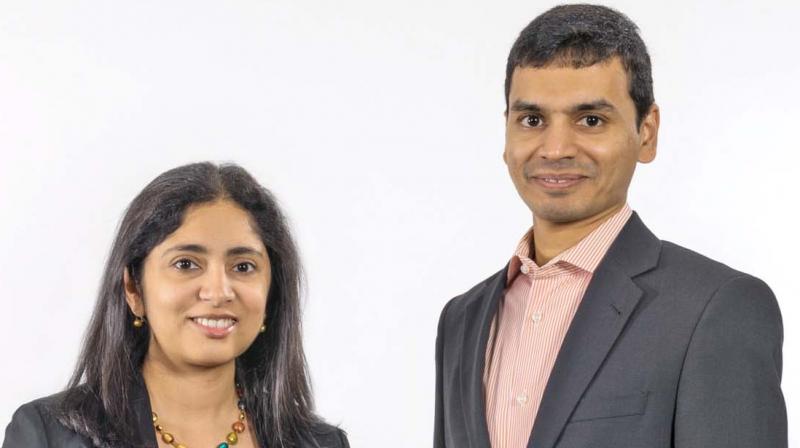Two times the eureka!
Madhu Bhaskaran has won the prestigious Eureka award for Science in Australia.

Growing up in Chennai and completing her bachelor studies in Coimbatore, Madhu Bhaskaran had her love for science kindled by her doctor parents. When she was encouraged to pursue a higher study in science, electronics was her first choice, as it was the time when mobile phones and computers started finding their place in every home.
Now an associate professor leading a team of five at the RMIT University at Melbourne, Madhu has had a fulfilling journey. Elaborating on it, she begins, “I came to Melbourne to pursue a postgraduate degree in Microelectronics. Instead of designing circuits on computers, it was fascinating to be able to actually make microchips in the lab (which was what I did during my Masters project) and that triggered the interest to do a PhD and then continue to stay in the field of research. As a team, we have been working on wearable electronics for five years now and it started off with us wanting to make unbreakable electronics.”
Having won the most prestigious science award of the country, the Eureka Award (2017), for her contribution to stretchable and wearable electronics, Madhu might just be the first female of an Indian origin to win it. The award for the Outstanding Early Career Research category is given to a researcher under 35 every year. “It is an amazing honour and I was very surprised to be announced as the winner as it is tough competition. I am very pleased that the hard work of the team has been recognised,” she adds.
Turning Sci-fi into reality
Madhu expounds more about her work sharing, “The use of stretchable oxides for resilient devices that is practically ‘electronic skin’, which might be an integral part of health-care in the future. The product can help in the fight against skin cancer and detect dangerous gases in mines. That’s what our work was about. Wearable electronics started as a concept in 2012 and we now have a patented process for sensors to detect dangerous gases and tracking the amount of Ultra Violet (UV) exposure to the skin too.”
Her main objective is to make her devices come into reality and for people to use them. “I am extremely grateful for the award,” she shares, adding, “We would like to get these sensors out to people for them to have a real-life impact. We are now working with industry partners to see how that can be made into a reality. As a lot of our research is funded by the tax payer’s money, it is important to get the message out. It is also essential to be able to highlight science and technology innovations and breakthroughs to the next generation to spark their interest and motivate them to consider this as a career.”
Couple goals
Madhu’s husband Sharath Sriram, who is also a researcher, won the Eureka award in 2016 — and is her friend and inspiration. “Sharath won it in the Emerging Leader category for his work in the development of a memory cell, which can help neurological conditions such as Alzheimer’s and Parkinson’s diseases. My husband and I lead the research group together, but work on different aspects of various projects. Needless to say, without his and my family’s support, my achievements to date would not have been possible.”
The couple, who also love visiting exotic places in their free time, have various plans to contribute to the society via science.

